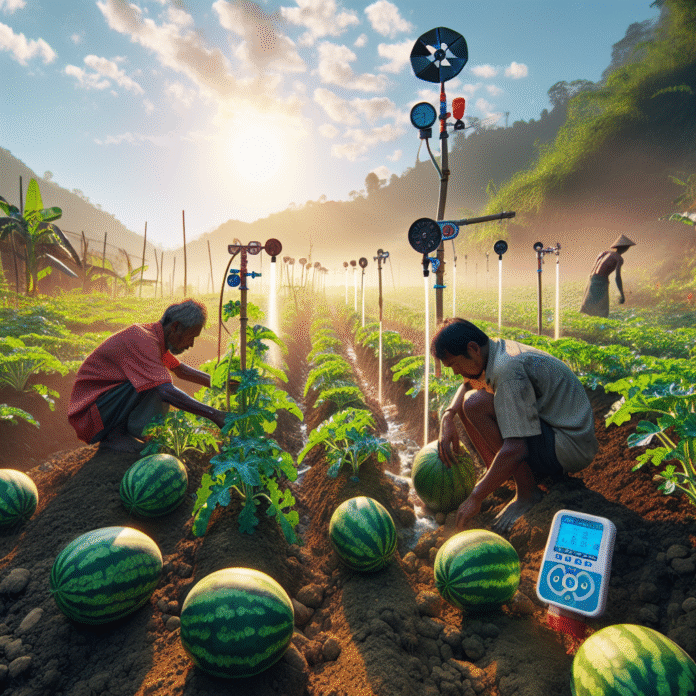Farmers in Meghalaya Adjust to Climate Challenges
Watermelon Boom: Farmers in Meghalaya Adapt to Climate Change
Meghalaya, a picturesque state in northeastern India, is witnessing a remarkable transformation as farmers turn to watermelon cultivation in response to the impacts of climate change. This shift not only highlights the resilience of local farmers but also showcases innovative agricultural practices that can thrive in a changing environment.
Climate Challenges and Agricultural Shifts
Farmers in Meghalaya have long faced challenges such as erratic rainfall patterns, rising temperatures, and increasing pest infestations, all attributed to climate change. These factors have prompted a reevaluation of traditional farming methods and crop choices. Watermelon, with its high water content and relatively short growing season, has emerged as a viable alternative.
Economic Benefits and Market Opportunities
The watermelon boom is not just beneficial for the environment; it also offers significant economic advantages. As demand for this refreshing fruit increases—both locally and in distant markets—farmers are finding new sources of income. The fruit’s popularity has opened up opportunities for agribusiness, including processing and distribution channels, thereby creating jobs and supporting local economies.
Innovative Farming Techniques
To maximize yields and adapt to the changing climate, farmers in Meghalaya are employing innovative techniques such as drip irrigation, organic farming practices, and intercropping. These methods not only enhance productivity but also contribute to sustainable agriculture, preserving soil health and reducing water usage.
Community Support and Education
Various government initiatives and non-governmental organizations are actively supporting farmers through training and resources on sustainable farming practices. Community workshops, agricultural fairs, and access to technology are empowering farmers with the knowledge needed to thrive in the face of climate challenges.
The Future of Watermelon Farming in Meghalaya
As the watermelon farming sector continues to grow, it holds the potential to transform Meghalaya’s agricultural landscape. With ongoing research into climate-resilient crop varieties and sustainable farming practices, the future looks promising for farmers in the region. By embracing change, they are not only securing their livelihoods but also contributing to a more resilient agricultural system that can withstand the challenges posed by climate change.
In conclusion, the watermelon boom in Meghalaya exemplifies how farmers can adapt to climate change through innovative practices and community support, paving the way for a sustainable agricultural future.


